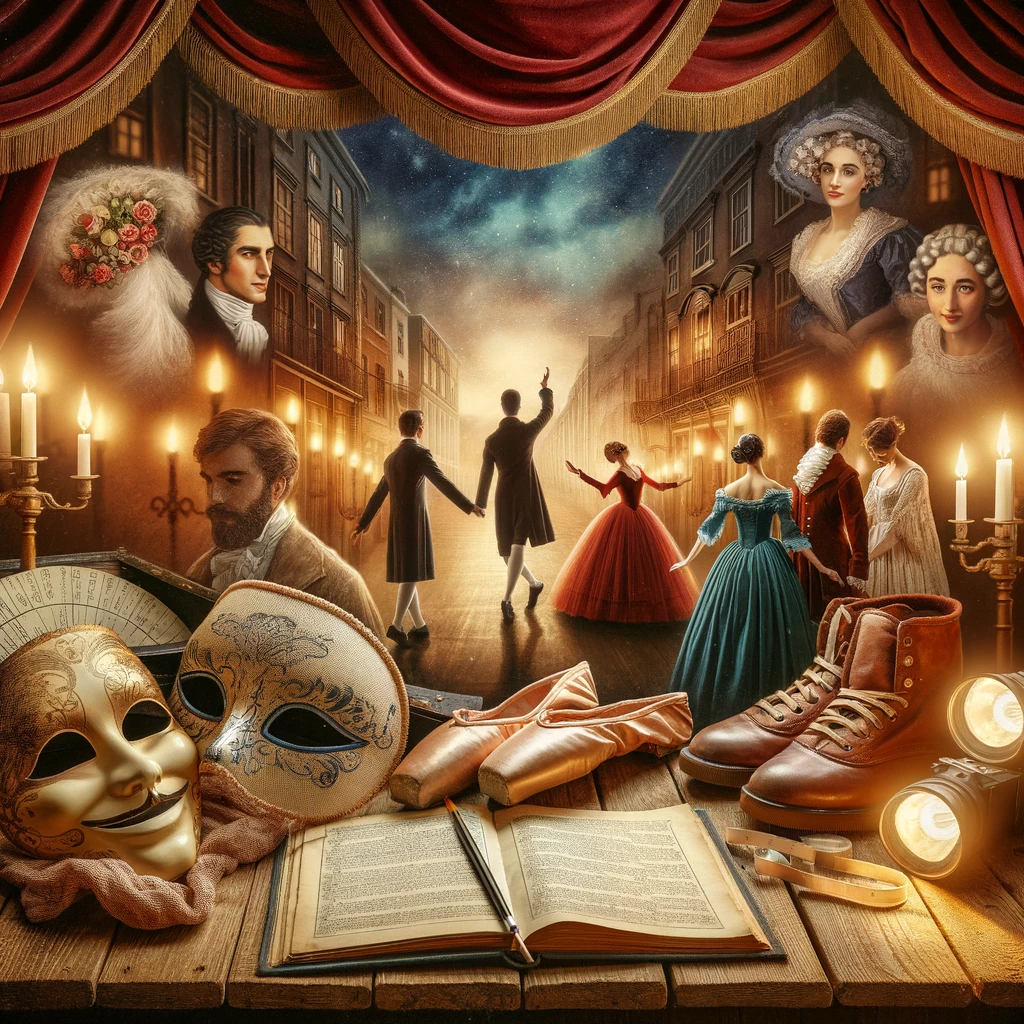The world of theatre is steeped in tradition, a rich tapestry of rituals and customs that date back centuries and continue to shape the performances of today. These traditions form the backbone of theatrical culture, connecting generations of performers and audiences to the enduring legacy of the stage. Let’s draw back the curtain on some of these time-honored practices that are as much a part of theatre as the plays themselves.
The Ghost Light: A Beacon in the Dark One of the most enduring symbols of theatre tradition is the ghost light—a solitary bulb that stands guard on the stage after the audience and performers have gone. Its origins are steeped in superstition, intended to ward off mischievous spirits or, more practically, to prevent accidents. But beyond its practicality, the ghost light has become a symbol of continuity, a sentinel that keeps watch over the theatre’s soul.
The Superstition of “The Scottish Play” Speak of ‘Macbeth’ inside a theatre, and you may well elicit gasps and hurried signs of the cross. The superstition surrounding Shakespeare’s “Macbeth” is one of the most famous in theatre. The play is said to be cursed, and invoking its name inside a theatre is thought to bring bad luck. Instead, actors refer to it as “The Scottish Play,” a nod to tradition that underscores the mystique of the theatre.
Opening Night: The Rites of Passage Opening night is more than the premiere of a production; it’s a rite of passage that is celebrated with time-honored rituals. From the giving of opening night cards and gifts to the pre-show pep talks and the nervous energy backstage, these customs are a part of the communal experience of bringing a production to life.
The Magic of the Curtain Call The curtain call is a tradition that honors the exchange between the audience and the performers. It’s a moment of mutual appreciation, where the applause offers thanks for the story told, and the bows acknowledge the audience’s vital role in the theatre. This tradition is a poignant reminder of the shared experience of live performance and the unspoken bond it creates.
Theatre Superstitions and Rituals Theatre is rife with superstitions and rituals, from the avoidance of whistling backstage—a throwback to the days when whistles were used to cue the crew—to the infamous “bad dress rehearsal equals a good opening night.” These customs, whether rooted in practicality or the supernatural, are embraced by actors and crew alike, forming a collective heritage that is passed down through the ages.
The Legacy of Commedia dell’Arte Traditions also extend to the styles and forms that have shaped theatre. Commedia dell’Arte, the Italian theatrical form characterized by masked “types,” improvisation, and physical comedy, has left an indelible mark on the theatre. Its influence can be seen in everything from Shakespeare’s comedies to modern-day sitcoms, proving that tradition can evolve while still honoring its roots.
Preserving Tradition Through Innovation While tradition is vital, the future of theatre also lies in innovation. Contemporary practitioners honor tradition by building upon it, pushing boundaries, and exploring new ways to tell stories. “Tradition is the foundation upon which we build the future of theatre,” notes director Samuel Lee. “It’s not a chain that binds us, but a springboard that propels us forward.”
In the end, theatre traditions are more than quaint customs or superstitious rituals; they are the threads that connect the past to the present, the individual to the community, and the performers to the audience. They remind us that theatre is not just an art form but a living, breathing entity that thrives on the reverence and renewal of its customs.
This article delves into the rich and fascinating customs that define the theatrical experience, celebrating the rituals that have been a part of this art form for centuries and the way they continue to resonate within the modern world of theatre.


